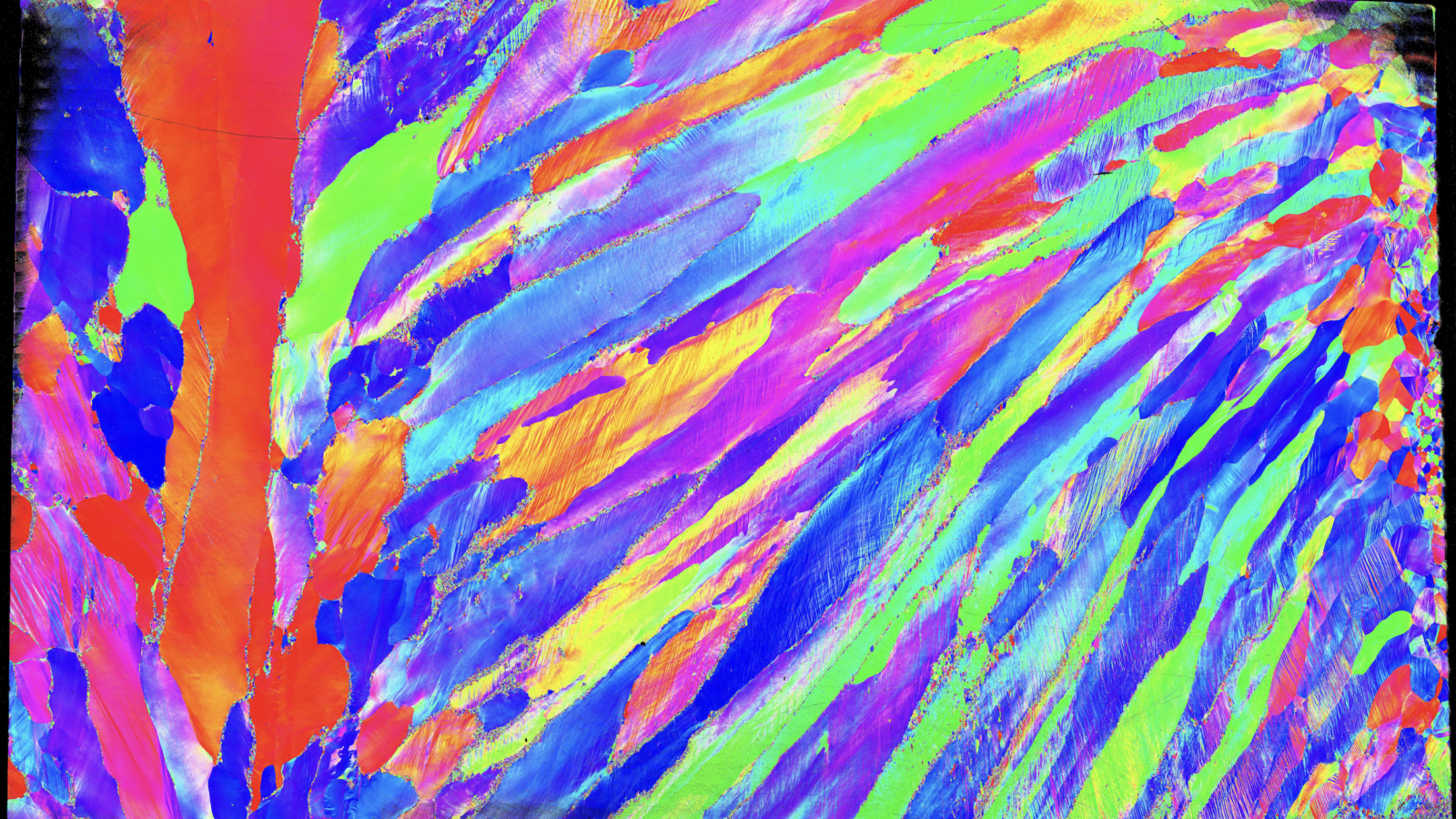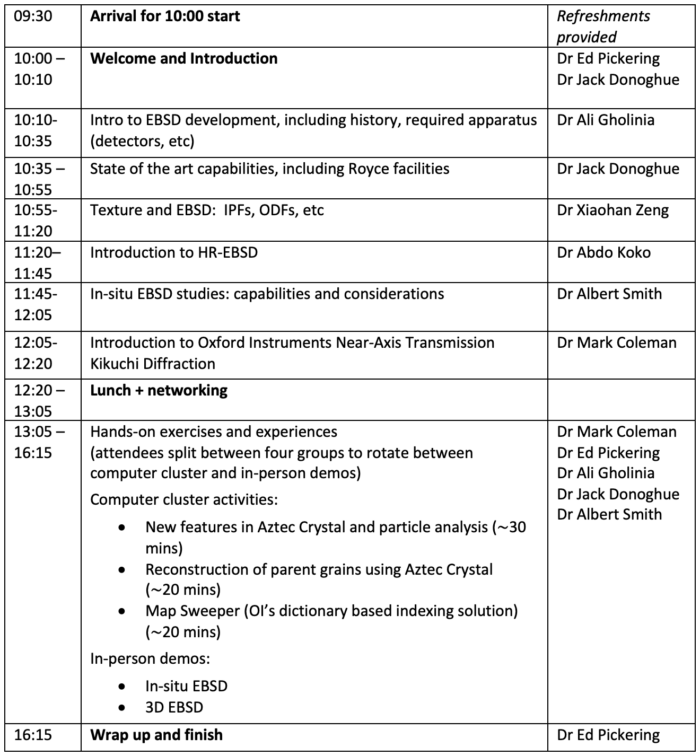Overview
This course will provide an introduction to advanced electron backscatter diffraction (EBSD) technique in alloy imaging and characterisation.
It will also provide an overview of the state-of-the-art facilities hosted by Royce at The University of Manchester, and other kit located with Royce partners. Routes to accessing Royce EBSD facilities will also be highlighted.
Outcomes for Attendees:
- An increased appreciation of how EBSD (and associated state-of-the-art techniques) work, and how they can be applied to study alloys.
- Experience using software to interrogate advanced EBSD datasets.
- Opportunity for community building interactions, including troubleshooting and tips.
Tickets will be on sale for £25.
Audience
Any researcher or industrialist looking to perform advanced EBSD analysis on alloys. Some familiarity with the technique and running EBSD experiments is desirable (it’s not meant as a basic introduction).
Aims
- An increased appreciation of how EBSD (and associated state-of-the-art techniques) work, and how they can be applied to study alloys.
- Experience using software to interrogate advanced EBSD datasets.
- Opportunity for community building interactions, including troubleshooting and tips.
The focus will be on Oxford Instruments / Aztec capability.
Learning outcomes
- An increased appreciation of how EBSD (and associated state-of-the-art techniques) work, and how they can be applied to study alloys.
- Experience using software to interrogate advanced EBSD datasets.
- Opportunity for community building interactions, including troubleshooting and tips.
Programme
Organisers
- Andrea Izquierdo- Royce
- Ed Pickering – The University of Manchester
- Jack Donoghue – The University of Manchester
Speakers
- Ed Pickering – The University of Manchester
- Jack Donoghue – The University of Manchester
- Mark Coleman – Oxford Instruments
- Abdo Koko – NPL
- Mark Taylor – The University of Manchester
- Ali Gholinia – The University of Manchester
- Albert Smith – The University of Manchester
- Xiaohan Zeng – The University of Manchester



